Filter by
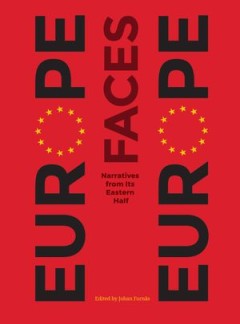
Europe Faces Europe Narratives from Its Eastern Half
Europe Faces Europe examines Eastern European perspectives on European identity. The contributors to this volume map narratives of Europe rooted in Eastern Europe, examining their relationship to philosophy, journalism, social movements, literary texts, visual art, and popular music. Moving the debate and research on European identity beyond the geographical power center, the essays explore how…
- Edition
- -
- ISBN/ISSN
- 9781783207510
- Collation
- -
- Series Title
- -
- Call Number
- -
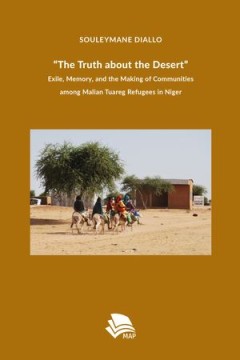
The Truth about the Desert” Exile, Memory, and the Making of Communities a…
The Truth about the Desert explores the living conditions under which Tuareg refugees from northern Mali rebuild their lives in the Nigerien diaspora and how these conditions affect their self-understandings and cultural practices, established status hierarchies, and religious identity formation. The book counterbalances an earlier scholarly preoccupation with Tuareg nobility by zoning in on tw…
- Edition
- -
- ISBN/ISSN
- 9783946198321
- Collation
- -
- Series Title
- -
- Call Number
- -
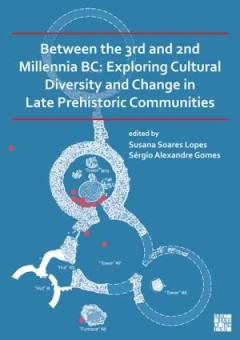
Between the 3rd and 2nd Millennia BC : Exploring Cultural Diversity and Chan…
Between the 3rd and 2nd Millennia BC: Exploring Cultural Diversity and Change in Late Prehistoric Communities is a collection of studies on the cultural reconfigurations that occurred in western Europe between the 3rd and 2nd millennia BC. It brings together seven texts focusing on the evidence from the West of the Iberian Peninsula, and one on the South of England. The texts have their origin …
- Edition
- -
- ISBN/ISSN
- 978-1-78969-923-4
- Collation
- -
- Series Title
- -
- Call Number
- 930.1 BET
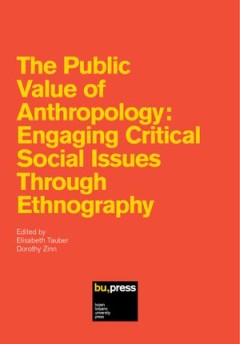
The Public Value of Anthropology
Accessible to non-specialists and researchers interested in ethnography, this volume offers an introduction into the uses of anthropology for engaging contemporary social issues. The editors’ essay surveys the development of anthropological research from its early exotic, non-Western focus to today’s debate over increasingly engaged approaches within a globalized society. The case studies u…
- Edition
- -
- ISBN/ISSN
- 9788860460769
- Collation
- -
- Series Title
- -
- Call Number
- -

The Public Value of Anthropology
Accessible to non-specialists and researchers interested in ethnography, this volume offers an introduction into the uses of anthropology for engaging contemporary social issues. The editors’ essay surveys the development of anthropological research from its early exotic, non-Western focus to today’s debate over increasingly engaged approaches within a globalized society. The case studies u…
- Edition
- -
- ISBN/ISSN
- 9788860460769
- Collation
- -
- Series Title
- -
- Call Number
- -
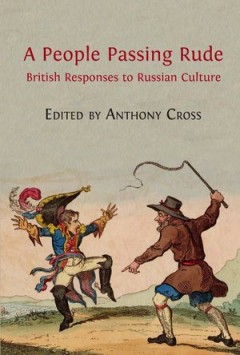
A People Passing Rude British Responses to Russian Culture
The essays in this stimulating collection attest to the scope and variety of Russia’s influence on British culture. They move from the early nineteenth century—when Byron sent his hero Don Juan to meet Catherine the Great, and an English critic sought to come to terms with the challenge of Pushkin—to a series of Russian-themed exhibitions at venues including the Crystal Palace and Earls C…
- Edition
- -
- ISBN/ISSN
- 9781909254121
- Collation
- -
- Series Title
- -
- Call Number
- -
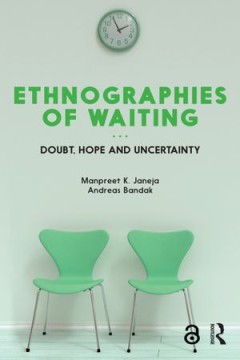
Ethnographies of Waiting Doubt, Hope and Uncertainty
We all wait – in traffic jams, passport offices, school meal queues, for better weather, an end to fighting, peace. Time spent waiting produces hope, boredom, anxiety, doubt, or uncertainty. Ethnographies of Waiting explores the social phenomenon of waiting and its centrality in human society. Using waiting as a central analytical category, the book investigates how waiting is negotiated in m…
- Edition
- -
- ISBN/ISSN
- 9781474280280
- Collation
- -
- Series Title
- -
- Call Number
- -
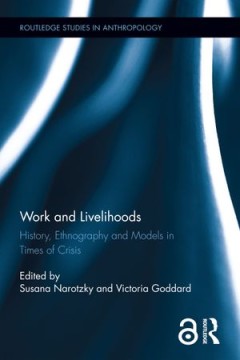
Work and Livelihoods History, Ethnography and Models in Times of Crisis
Winner of the Society for the Anthropology of Work book prize 2017 This volume presents a global range of ethnographic case studies to explore the ways in which - in the context of the restructuring of industrial work, the ongoing financial crisis, and the surge in unemployment and precarious employment - local and global actors engage with complex social processes and devise ideological, po…
- Edition
- -
- ISBN/ISSN
- 9781317602446
- Collation
- -
- Series Title
- -
- Call Number
- -
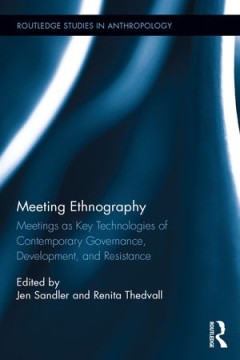
Meeting Ethnography Meetings as Key Technologies of Contemporary Governance,…
This volume asks and addresses elusive ontological, epistemological, and methodological questions about meetings. What are meetings? What sort of knowledge, identities, and power relationships are produced, performed, communicated, and legitimized through meetings? How do—and how might—ethnographers study meetings as objects, and how might they best conduct research in meetings as particula…
- Edition
- -
- ISBN/ISSN
- 1317195108
- Collation
- -
- Series Title
- -
- Call Number
- -
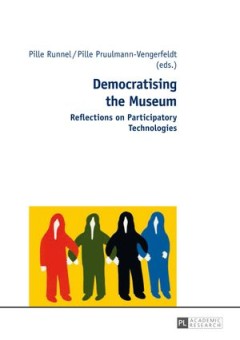
Democratising the Museum Reflections on Participatory Technologies
Democratising the museum is a collection of articles reflecting upon the problem of how participation, technologically mediated or not, can support the museum in the process of becoming more accessible. The open museum shares power with its visitors while negotiating professionalism and the role of the museum in a modern society. The book looks at the roles and struggles of audiences/visitors a…
- Edition
- -
- ISBN/ISSN
- 9783653039726
- Collation
- -
- Series Title
- -
- Call Number
- -
 Computer Science, Information & General Works
Computer Science, Information & General Works  Philosophy & Psychology
Philosophy & Psychology  Religion
Religion  Social Sciences
Social Sciences  Language
Language  Pure Science
Pure Science  Applied Sciences
Applied Sciences  Art & Recreation
Art & Recreation  Literature
Literature  History & Geography
History & Geography